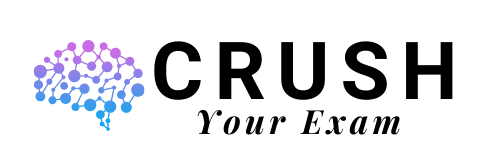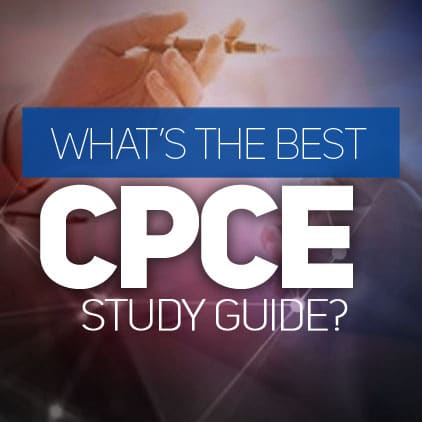
Effective Strategies for Success
Studying for the National Counselor Examination (NCE) is a significant step for those seeking licensure as professional counselors. The NCE is designed to assess a candidate’s understanding of counseling theories, techniques, and the application of these concepts in practical situations. As a comprehensive, 200-item multiple-choice examination, it covers a wide array of topics essential for effective counseling. Preparing for the NCE requires a strategic approach, involving a thorough review of study materials, mastering key concepts, and familiarizing oneself with the exam format and content.

Effective preparation strategies include developing a study plan tailored to individual needs, utilizing a variety of resources, and engaging in consistent practice. It’s essential for candidates to focus on the areas of study specified by the NBCC, while also taking the time to address any personal areas of weakness. Resources such as study guides, practice tests, and comprehensive study materials can prove invaluable. Beyond preparation, understanding test-taking strategies and what to expect after the exam can contribute significantly to a candidate’s success and confidence.
Key Takeaways
- A thorough understanding of counseling theories and techniques is crucial.
- Tailored study plans and the use of diverse study materials are beneficial.
- Comprehending the exam structure and post-exam procedures is important.
Understanding the NCE
Before embarking on study preparations for the NCE, it is crucial to comprehend what the National Counselor Examination entails, its requirements for eligibility, and the structure of the exam content.
Overview of the National Counselor Examination
The National Counselor Examination (NCE) is a detailed assessment developed to certify counseling professionals. This pivotal exam is administered by the National Board for Certified Counselors (NBCC), serving as a criterion for National Certified Counselor (NCC) licensure. It is grounded in a job analysis that ensures relevancy to contemporary counseling practices and reflects the five work behaviors and eight knowledge areas outlined by the NBCC.
Eligibility and Registration Process
Eligibility for the NCE is typically based on education and supervised work experience, which vary according to state licensure board requirements. Aspirants must generally possess a graduate degree in counseling or a related field from an accredited institution and complete a specified number of hours under supervision. The registration process involves submitting an application to the NBCC, meeting educational criteria, and receiving authorization to schedule the exam. Candidates can register online or via other methods offered by the NBCC.
Structure and Content Areas
The NCE consists of 200 multiple-choice questions, tackling subjects that counselors are expected to know to provide effective services. The allotted time for completing the exam is 3 hours and 45 minutes. The questions are split across content areas such as human growth and development, social and cultural diversity, counseling and helping relationships, and more. Scores are calculated based on the number of questions answered correctly, and no penalty exists for guessing. Understanding the format and content areas is vital for effective study and preparation for the exam.
Preparation Strategies
To achieve success in the National Counselor Examination (NCE), one must embrace a strategic approach to studying. This includes evaluating current knowledge, establishing tailored study plans, and engaging in active learning practices.
Assessing Your Starting Point
Before a candidate dives into the study materials, it’s crucial to determine their foundational knowledge. Practice questions serve as an effective diagnostic tool to identify strengths and weaknesses. A pretest can give insight into the domains that require more focus, guiding the creation of a personalized NCE Study Guide.
Study Schedules and Time Management
A well-organized study schedule is vital to ensure study time is used efficiently. Mapping out a timetable that divides study material into manageable chunks allows for consistent progress. Candidates should integrate study tools such as flashcards, and digital resources, and possibly engage a tutor to enrich their learning experience.
- Morning: Review previous day’s material.
- Afternoon: Tackle new content areas.
- Evening: Test knowledge with practice questions.
Active Learning Techniques
Active learning involves participatory study methods that reinforce understanding. Techniques such as teaching learned content to others and applying theories to case studies can concrete knowledge. Utilizing Test Prep services, including review courses and study guides, can provide structured frameworks for active engagement.
- Teach back: Explain concepts to a peer or mentor.
- Case simulations: Apply knowledge to hypothetical scenarios.
Every interaction with the study material should be an opportunity to apply active learning techniques, making the preparation for the NCE a dynamic and effective process.
NCE Study Material and Resources

Effective preparation for the NCE relies on a combination of comprehensive study materials, robust practice tests, and supportive resources. These tools are essential for understanding the theoretical concepts and for developing the test-taking skills required for success on the exam.
Recommended Texts and Theories
Books form the backbone of any study plan. Candidates should focus on texts that cover a broad range of counseling theories and detailed explanations of mental health principles. It is advisable to review materials endorsed by the NBCC, as they offer content that is directly aligned with the exam. Additionally, aspirants might consider including literature that provides an in-depth understanding of counseling ethics, developmental theories, and treatment planning.
Utilizing Practice Exams and Questions
Incorporating practice questions and full-length practice exams into one’s study plan is crucial for gauging readiness. Such resources help students familiarize themselves with the exam format and question styles. You can view a comparison of the best NCE prep courses available for 2026 here.Providers such as Pocket Prep offer mobile apps that feature a plethora of practice questions, while sites like NationalCounselingExam.com provide comprehensive test prep options ranging from study guides to simulated exams.
Additional Study Aids
For students seeking alternative methods of studying, there are additional study aids such as videos, webinars, and interactive modules. These can be especially helpful for visual and auditory learners. Providers like Dooey NCE offer multi-format study plans and materials that cater to the various learning styles of test-takers, ensuring that every candidate has access to the type of resource that best fits their study needs.
Key Concepts to Master

The NCE exam covers a broad range of topics each counselor must be proficient in. To excel on the exam, candidates should focus on key areas of counseling practice and theory. These include major concepts in human development, cultural diversity, the counseling relationship, group work, career counseling, and more. Here’s a breakdown of these crucial concepts.
Human Growth and Development
Candidates should understand the various stages of human growth and development. Frameworks by theorists like Piaget and Kohlberg illustrate cognitive and moral development. A grasp of these theories aids in assessing and planning appropriate counseling interventions tailored to clients’ developmental stages.
Social and Cultural Diversity
Professionals are expected to be aware of and sensitive to the diverse social and cultural backgrounds of clients. They should study cultural diversity concepts comprehensively, ensuring they can provide services that honor their clients’ unique perspectives and experiences.
Counseling and Helping Relationships
Core counseling attributes such as empathy, honesty, and respect are pivotal. Understanding the intricacies of counseling skills and interventions, and how they form helping relationships is critical. Candidates must also learn about the different areas of clinical focus that inform treatment planning.
Group Work and Group Counseling
Effective group counseling requires understanding group dynamics and applying various techniques. It’s important to familiarize oneself with group developmental stages, group counseling interventions, and strategies for managing group processes.
Career Development
Career counseling is an essential aspect of practice. This includes mastering theories of career development and decision-making models, as well as understanding the application of counseling interventions in helping clients with career planning and adjustment.
Assessment and Testing
The NCE expects candidates to be proficient in the principles and methods of assessment and testing used for intake, assessment, and diagnosis. It’s important for candidates to learn how to ethically administer and interpret assessments to facilitate a client’s treatment process.
Research and Program Evaluation
Counselors must be capable of understanding and applying research methods, statistical analyses, and program evaluation techniques. This knowledge supports evidence-based practice and the continual improvement of counseling services offered.
Professional Counseling Orientation and Ethical Practice
A robust understanding of professional practice and ethics is non-negotiable. Candidates should study professional ethical standards and relevant laws to ensure they are prepared to navigate ethical dilemmas and uphold the integrity of the counseling profession.
Practical Tips for NCE Success

Achieving success on the National Counselor Examination (NCE) hinges on having a strategic approach to both the preparation and on the day of the exam itself. This section provides specific, practical advice for the final steps in your journey to becoming a certified counselor.
The Day Before the Exam
The day prior to the NCE is crucial for setting a positive tone. One should indulge in a healthy meal and prioritize a full night’s sleep to ensure optimal cognitive function. Packing the essentials for test day—including admission documents, acceptable identification for Pearson VUE, and any necessary materials—is also a must to sidestep any last-minute stress.
- Nutrition: Eat balanced meals, focusing on foods that are known to aid concentration and memory.
- Rest: Aim for 7-9 hours of uninterrupted sleep to wake up refreshed.
- Preparation: Gather all necessary documents and items, and review the test center’s requirements.
Test Day Strategies
On the day of the exam, adhering to a plan can facilitate peak performance and help maintain one’s composure. Arriving at the testing center early allows for ample time to check in, familiarize oneself with the environment, and settle in comfortably. Employing effective test-taking strategies, such as reading each question carefully and managing one’s time efficiently, keeps progress aligned with the goal of NCE success.
- Arrival: Get to the Pearson VUE center early; account for any potential delays.
- Reading: Carefully read through each question, ensuring a clear understanding before choosing an answer.
- Time Management: Monitor the exam progress and pace yourself to avoid rushing through the questions.
Adopting these carefully curated tips increases the likelihood of having a good test-taking experience and making the right strides towards certification.
After the Exam
After completing the National Counselor Examination (NCE), candidates are eager to understand their performance and the subsequent steps necessary for obtaining licensure. The following information lays out a clear path to interpreting scores and walking through the licensure process.
Understanding Your NCE Score
The National Board for Certified Counselors (NBCC) employs the Modified Angoff Method to determine the passing score for the NCE. Once the exam is graded, scores are reported to candidates through their designated NBCC account. A candidate’s raw score, the number of questions answered correctly, is converted into a scaled score. This scaling process accounts for the difficulty of different exam forms and ensures that scores are comparable across different administrations. The minimum passing scaled score is established by a panel of experts and reflects the level of knowledge expected from a minimally qualified candidate.
Next Steps Toward Licensure
Upon receiving a passing NCE score, the next phase is pursuing state licensure. It’s important to note that while the NCE is a pivotal component, licensure requirements can vary significantly by state. Candidates should check with their respective state licensing board to verify any additional criteria, which may include postgraduate supervised work experience or a jurisprudence exam. Once all state requirements are met, candidates may become eligible for National Certification as a National Certified Counselor (NCC). Obtaining this certification can enhance professional credibility and may lead to widened employment opportunities.
Frequently Asked Questions
The right preparation strategy is critical for success on the National Counselor Examination (NCE). Below are specific questions and answers to guide candidates as they prepare for the exam.
What strategies are most effective when using a study guide for the National Counselor Exam?
A strategic approach involves managing time efficiently, navigating challenging questions effectively, and staying composed during the exam. Getting a well-crafted study guide provides valuable test-taking strategies that are crucial for the NCE.
Which NCE study guides are recommended for exam preparation?
Candidates are encouraged to explore study guides that align with the NCE’s content and structure. The National Board for Certified Counselors (NBCC) provides official materials that can be particularly helpful due to their direct relevance to the examination’s format.
How many months in advance should one begin studying for the NCE for optimal results?
It’s typically advisable to commence studying several months in advance, allowing adequate time to cover all content areas and account for varied learning styles. However, the exact timeline depends on individual readiness and prior knowledge.
What are the proven benefits of using online resources to prepare for the NCE?
Online resources offer up-to-date materials and the flexibility to study at one’s own pace. These platforms can also provide practice questions and interactive learning activities that mirror the style and scope of the NCE.
Are there any high-quality free NCE study materials available online?
Yes, there are various free resources available online. These materials range from practice questions and exam content outlines to comprehensive study guides. They serve as beneficial supplements to paid materials, offering candidates a diverse range of preparation tools.
Can you suggest any applications that are useful for studying for the NCE?
While numerous apps are designed to aid in test preparation, candidates should look for those that are tailored to the NCE content areas and offer practice questions and study plans. Opting for applications with positive reviews and a track record of helping others pass the exam can be advantageous.


